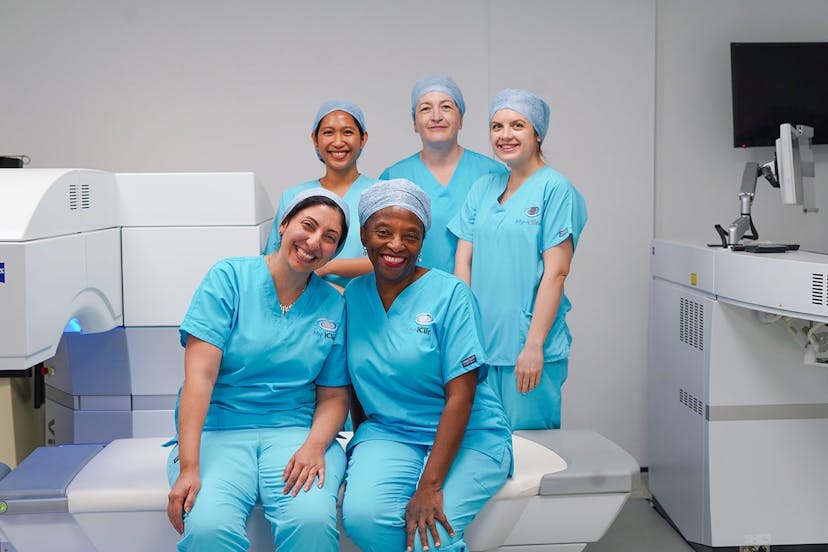
The Ultimate Patient Guide To Understanding Vitrectomy
Vitrectomy is a versatile surgical procedure primarily used to treat various conditions affecting the retina and the vitreous humor, the clear gel-like substance inside the eye. One of the most common applications of vitrectomy is the repair of retinal detachment, where the retina pulls away from its normal position. This condition requires urgent intervention to prevent permanent vision loss, and vitrectomy provides the necessary access to reattach the retina effectively. However, retinal detachment is just one of many conditions that fall under the vitrectomy umbrella.
Other Vitrectomy Procedures
Beyond retinal detachment repair, vitrectomy procedures encompass a spectrum of intricate interventions aimed at addressing diverse ocular challenges, from diabetic retinopathy to macular holes, each demanding meticulous surgical finesse and a profound understanding of the eye's inner workings.
Macular Hole Repair
A macular hole is a small break in the macula, the central part of the retina responsible for sharp, detailed vision. At My-iClinic, we understand how crucial clear vision is to your quality of life. This condition often results in blurred or distorted central vision, making everyday tasks like reading and driving challenging. Our expert team at My-iClinic is dedicated to providing personalised care, using advanced diagnostic tools and treatment options to effectively manage and improve your vision. We prioritise your eye health, ensuring you receive the most comprehensive and compassionate care possible.
Macular Hole: From Diagnosis To Treatment

Epiretinal Membrane Peeling
Epiretinal membrane peeling is a surgical procedure designed to remove a thin layer of scar tissue that forms on the surface of the retina, specifically the macula, which can cause vision distortion and blurriness. This condition, also known as macular pucker, often leads to symptoms such as difficulty reading or recognising faces. The peeling procedure involves delicately lifting and removing this membrane to help restore the macula's smooth surface, thereby improving vision clarity and reducing visual distortion. The goal is to enhance the patient's overall visual function and quality of life.

Diabetic Retinopathy Treatment
Diabetic retinopathy treatment focuses on managing and mitigating the damage caused by high blood sugar levels to the blood vessels in the retina. This progressive eye condition, common among individuals with diabetes, can lead to vision loss if left untreated. Treatment options include laser therapy to seal leaking blood vessels, intravitreal injections of medications to reduce inflammation and prevent abnormal blood vessel growth, and vitrectomy surgery to remove blood and scar tissue from the vitreous. Early detection and prompt treatment are crucial in preserving vision and preventing further complications, ultimately aiming to maintain the patient's visual health and quality of life.
Is It Possible To Have Diabetic Retinopathy Alongside Cataracts?

Vitrectomy for Floaters
Vitrectomy for floaters is a surgical procedure aimed at removing the vitreous gel from the eye to eliminate visual disturbances caused by floaters. Floaters are small, shadowy shapes that drift across the visual field, often caused by clumps or strands within the vitreous gel. During a vitrectomy, the surgeon carefully removes the vitreous gel and replaces it with a clear solution, thus clearing the visual pathway. This procedure is particularly beneficial for individuals whose floaters significantly impair their vision and daily activities, providing them with clearer vision and an improved quality of life.

Retinal Vein Occlusion
Retinal vein occlusion (RVO) treatment focuses on managing the blockage of the veins carrying blood away from the retina, which can lead to vision problems such as blurred vision or sudden vision loss. This condition often results from underlying health issues like hypertension or diabetes. Treatment options include intravitreal injections of medications to reduce swelling and prevent further damage, laser therapy to address retinal swelling or abnormal blood vessel growth, and managing underlying conditions to prevent recurrence. Prompt and effective treatment aims to preserve vision, enhance visual clarity, and improve overall eye health.
Trauma Repair
Trauma repair in the context of eye care involves the surgical and medical management of injuries to the eye and surrounding structures. These injuries can range from minor corneal abrasions to severe cases like globe rupture or orbital fractures. Treatment aims to restore the integrity and function of the eye, prevent infection, and preserve vision. This may include suturing lacerations, removing foreign bodies, repairing fractures, and addressing retinal detachment or haemorrhage. Early and expert intervention is critical to achieving the best possible outcomes, ensuring that patients regain as much visual function as possible while minimising long-term complications.
Decoding Vitrectomy: Is It Classified As A Major Surgery?

Intraocular Infection (Endophthalmitis) Treatment
Treatment for intraocular infection, known as endophthalmitis, involves urgent and aggressive measures to eradicate the infection and preserve vision. This serious condition, often caused by bacterial or fungal pathogens entering the eye, can result from surgery, injury, or systemic infections. Treatment typically includes administering high-dose intravitreal antibiotics or antifungals directly into the eye, and may involve a vitrectomy to remove infected vitreous gel and reduce inflammation. Prompt diagnosis and immediate treatment are critical to improving outcomes, preventing vision loss, and safeguarding the overall health of the eye.
Understanding Vitrectomy: A Comprehensive Guide to Retinal Surgery

Lens Fragment Removal
Lens fragment removal is a surgical procedure to extract pieces of the lens that may remain or become dislodged within the eye, typically following cataract surgery. These fragments can cause inflammation, increased intraocular pressure, and damage to ocular structures, potentially leading to impaired vision. The removal procedure involves using specialised instruments to carefully retrieve the lens fragments, often performed alongside vitrectomy to ensure complete clearance. The goal is to alleviate symptoms, prevent complications, and restore the eye to its optimal functional state, thereby preserving and enhancing the patient's vision and comfort.
Retinal Detachment
Retinal detachment is a condition that unfurls like a silent drama within the eye's intricate realm. Imagine the retina as a delicate canvas capturing life's visuals, intricately linked to the optic nerve, transmitting the world's hues and shapes to the mind's eye. However, in retinal detachment, this canvas peels away from its moorings, like a ship drifting from its harbour. It's a stealthy thief, often robbing sight without a whisper of warning. Within the eye's chambers, a symphony of elements orchestrates this detachment—a tug-of-war between vitreous gel and retinal tissues, sometimes spurred by trauma, age, or underlying ocular conditions. As the retina detaches, vision dims like lights fading in a theatre, leaving shadows and distortions in its wake. Yet, amidst this darkness, hope gleams in the form of prompt medical intervention—a surgeon's skilled hand delicately reattaching the unravelled canvas, restoring the spectacle of sight to the beholder.
More questions answered:
The Common Warning Signs Of Retinal Detachment
Exploring The Diverse Types Of Retinal Detachment
Each of these procedures shares the common goal of preserving or improving vision by addressing specific issues within the vitreous and retinal structures. Understanding the various applications of vitrectomy can help patients appreciate the broad scope and importance of this surgical technique in modern ophthalmology.

Seeking Professional Help
Embark on a journey to clearer vision with My-iClinic, where expertise meets compassion to illuminate your path to Vitrectomy clarity. As a premier clinic dedicated to resolving a myriad of vision correction issues, we extend a hand to those seeking transformative solutions. From pioneering laser eye surgeries to cutting-edge treatments tailored to your unique needs, our team of seasoned professionals stands ready to guide you towards a brighter tomorrow. Take the first step towards a life unhindered by blurred horizons—schedule your consultation with My-iClinic today, and let us redefine your vision, one focused gaze at a time.
Find out more by Speaking to our team









